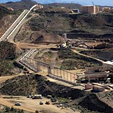Legislation & Regulation
Legislative and Regulatory Update
June 2022 by Scott Harn
• All bark but no bite
(AP)—President Joe Biden is turning to a Cold War-era law to boost production of lithium and other minerals used to power electric vehicles, but experts say the move by itself is unlikely to ensure the robust domestic mining Biden seeks as he promotes cleaner energy sources.
Biden’s action, part of his efforts to find alternatives to fossil fuels and combat climate change, does not waive or suspend existing environmental and labor standards, the White House said. Nor does it address the chief hurdle to increased domestic extraction of so-called critical minerals: the years-long process needed to obtain a federal permit for a new mine.
Biden used the 1950 Defense Production Act to increase US supplies of lithium, nickel and other minerals needed for electric-vehicles batteries and other clean-energy technology.
But “unless we continue to build on this action” and approve new hardrock mines, said Rich Nolan of the National Mining Association, “we risk feeding the minerals dominance of geopolitical rivals” such as China and Russia.
“We have abundant mineral resources here,” he said. “What we need is policy to ensure we can produce them and build the secure, reliable supply chains we know we must have.”
Environmentalists, meanwhile, worry that Biden is activating a war-time tool to boost mineral extraction that can contaminate groundwater and harm ranching and wildlife.
“The clean energy transition cannot be built on dirty mining,” said Lauren Pagel, policy director of Earthworks, an environmental group that has pushed for stronger restrictions on hardrock mining.
Biden’s order directs the Defense Department to consider at least five metals—lithium, cobalt, graphite, nickel and manganese—as essential to national security and authorizes steps to bolster domestic supplies. Biden and former President Donald Trump both used the defense production law previously to speed the US response to the COVID-19 pandemic.
On minerals, Biden claims he wants to ensure the US has enough lithium and other materials needed for EV batteries, heat pumps and large-capacity batteries for the electric grid. A majority of global lithium production comes from China, Australia, Argentina and Chile, while Russia dominates the global nickel market and the Democratic Republic of Congo is the world’s largest cobalt producer.
Although lithium reserves are distributed widely across the globe, the US is home to just one active lithium mine, in Nevada. New and potential lithium mining and extracting projects are in various stages of development in Nevada, Maine, North Carolina and California. Democratic Gov. Gavin Newsom has labeled California the “Saudi Arabia of lithium,” and two projects there could produce lithium by 2024.
Under Biden’s order, the Pentagon is authorized to spend millions of dollars to support a range of activities, including feasibility studies to determine economic viability of a proposed mine and develop mineral-waste recycling programs. Money also could help existing mines and other industrial sites produce valuable materials, the Pentagon said. For example, a copper mine could also produce nickel.
It’s unclear how much money will be available for mining, but the Defense Department is authorized to keep up to $750 million on hand for its strategic and critical material stockpile.
Sen. Catherine Cortez Masto, D-Nev., called Biden’s order “a good first step toward expanding our electric vehicle battery manufacturing and infrastructure,” but she and other lawmakers said the US needs a long-term strategy to improve the domestic supply chain of critical minerals.
“Unless the president streamlines permitting, we should not expect to see any meaningful increase in American mineral production,” said Wyoming Sen. John Barrasso, the top Republican on the Senate Energy and Natural Resources Committee. At a recent committee hearing. Barrasso urged Biden to “stand up to mining opponents in his own party.”
Arizona Rep. Raul Grijalva, a Democrat who chairs the House Natural Resources Committee, called Biden’s order misguided. “Fast-tracking mining under antiquated standards that put our public health, wilderness and sacred sites at risk of permanent damage just isn’t the answer,” he said.
Grijalva and Sen. Martin Heinrich, D-N.M., introduced legislation to weaponize the 1872 law that governs hardrock mining in the US.
“Our current mining law was put in place before we even knew what a car was, much less an electric one,” Grijalva said. “Modernizing this relic of a law isn’t extreme or anti-industry—it’s just common sense.”
Grijalva and Heinrich aim to establish a 12.5% royalty on new mining operations and an 8% royalty on existing operations, though this endeavor stands little chance of passing in the current Congress.
The bill also would set up a Hardrock Minerals Reclamation Fund to make the industry pay more for cleanup of abandoned mine sites.
Another Nevada lithium mine is planned near a desert ridge where a rare wildflower has been proposed for listing as an endangered species. The mine’s developer, Australia-based Ioneer, said the expected habitat protections for the rare Tiehm’s buckwheat would not affect its mining activities, and company operations would not jeopardize conservation of the species, but opponents dispute that and a long fight is expected.
• Company looks to restart mining in Wisconsin
(AP)—A mining company wants permission to explore for gold and other minerals in Marathon County.
The Milwaukee Journal Sentinel reported that Green Light Metals submitted an exploratory drilling application to the county. The company received a state permit in February that’s good through June 30.
The site likely would become an open-pit mine if Green Light decides to launch a full-scale operation there. Mining at the site could become the first such activity in Wisconsin after legislators overturned a moratorium in 2017.
Marathon County officials are preparing for feedback from community members over the proposal.
“It will be a hot topic; I’ll be the first to admit,” said County Board member Jacob Langenhahn, who also co-chairs the Metallic Mining Committee.
Legislative and Regulatory Update
• Bill to address Forest Service Travel Management restrictions
• Suction gold dredging challenge finally under way
• EPA nullification bill fails in Idaho
• Another bad bill
Legislative and Regulatory Update
• Positive bill passes House
• Anti-mining bill dies in Washington State
Reminder: Annual Claim Filings Due
Mining claimants who wish to retain their mining claims on Bureau of Land Management and Forest Service lands through the 2021 assessment year must pay a maintenance fee or file a maintenance fee waiver certificate on or before September 1…
Legislative Update
118th Congress 1st session
Suction Dredging Battle Escalates
• State attorneys claim the Court of Appeals wrongly relied on South Dakota Mining Association v. Lawrence County regarding federal preemption...
US Rare Earths: We Have & We Have Not
 America’s premier source of strategic REEs were regulated out of business and 300 employees lost their jobs. For almost fifteen years America has been dependent on the communist Chinese cartel.
America’s premier source of strategic REEs were regulated out of business and 300 employees lost their jobs. For almost fifteen years America has been dependent on the communist Chinese cartel.
MMAC & PLP Update
Keep in mind there are specific steps that must be taken to get your traditional mining district organized if it has fallen into disarray.
Subscription Required:
The Bawl Mill
• Why The Paper Change?
• Ask The Experts - When do I use detector discrimination?
• Ask The Experts - Is gold found in limestone?
• Ask The Experts - Can pyrite crystals be the same color as gold?
• How to Use BLM’s New Mineral and Land Records System
• A Short But Productive Hunt
• Blast from the Past: Jeff Casserly Tells His Own Story
• Old Dog(Fighter), New Trick
• Talking Metal Detectors with Brent Weaver of Garrett
• Strategies for Detecting Heavily Pounded Areas—Part III
• EPA Recommends Against Reissuing Permit for PolyMet Mine
• The Highs and Hazards of Desert Prospecting
• Just Feel The Heft of It
• Proposed Nebraska Mine Has Sizeable Deposit of Rare Elements
• Mining Stock Quotes and Mineral & Metal Prices
• Melman on Gold & Silver
Free:
Introducing ICMJ’s New Owners: Josh and Sherrie Reinke
• PLP Update








